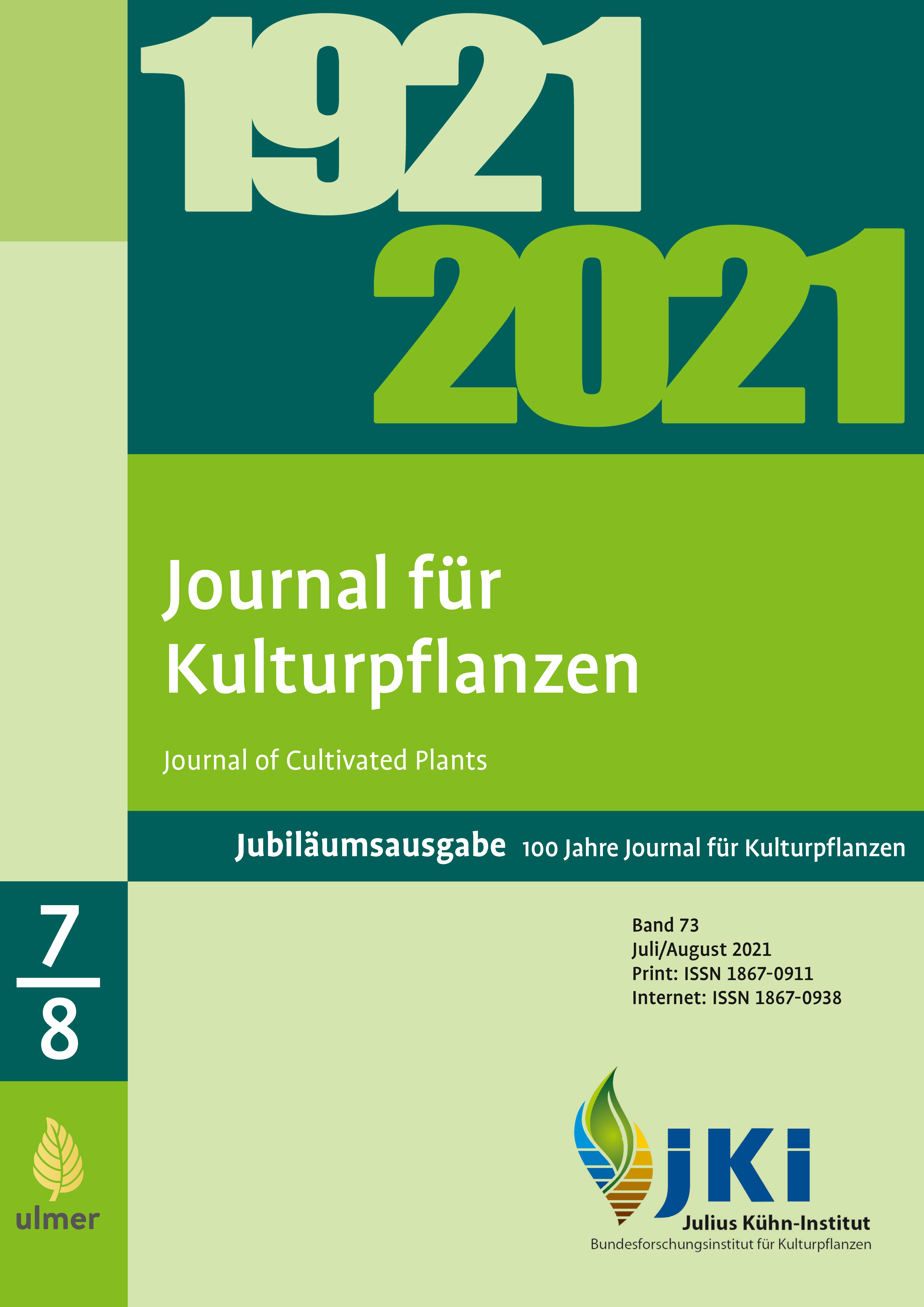Climate change and possible challenges for crop protection – Yesterday, today, tomorrow
DOI:
https://doi.org/10.5073/JfK.2021.07-08.14Keywords:
Climate change, plant protection, plant health, harmful organisms, adaptation, impact assessmentAbstract
Climate and weather are decisive factors for plant protection. Already 100 years ago, scientists dedicated themselves to this topic in the newsletter of the German Plant Protection Service. The effects of climate change are ambivalent and there will be an overall change in the pest spectrum. Damage caused by insects, pathogens and heat-tolerant weeds will tend to be favoured. The risk of invasive species becoming established increases. Similarly, the effectiveness of biological crop protection may be compromised and new methods may be required. In the case of chemical pesticides, the spectrum of active substances will shift and the demands on application technology and timing will increase. Heavy rains can increase the risk of pesticide run-off into the environment. There may be increased infestation with storage pests already in the field in Central Europe too, and the quality and storage stability of harvested products may decline. Overall, the importance of preventive plant protection measures will increase. The consequences of climate change increase operational and economic risks and pose considerable challenges for all levels of stakeholders.
Downloads
Published
Issue
Section
License
Copyright (c) 2021 Sandra Krengel-Horney, Cornel Adler, Beatrice Berger, Til Feike, Kerstin Flath, Johannes Hausmann, Daniel Herrmann, Johannes Jehle, Christoph Joachim, Isabella Karpinski, Michael Maixner, Markus Möller, Madeleine Paap, Siegfried Schittenhelm, Gritta Schrader, Petra Seidel, Andreas Stahl, Jörn Strassemeyer, Lena Ulber, Dieter von Hörsten, Christoph von Redwitz, Jens-Karl Wegener, Nazanin Zamani-Noor, Hella Kehlenbeck

This work is licensed under a Creative Commons Attribution 4.0 International License.
The content of the journal is licensed under the Creative Commons Attribution 4.0 License. Any user is free to share and adapt (remix, transform, build upon) the content as long as the original publication is attributed (authors, title, year, journal, issue, pages).
The copyright of the published work remains with the authors. The authors grant the Journal of Cultivated Plants, the Julius Kühn-Institut and the OpenAgrar repository the non-exclusive right to distribute and exploit the work.







